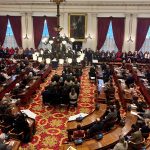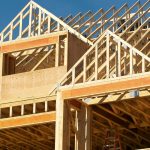Disaster Response Bill Under Consideration
Looking ahead, it’s not a matter of if, but when, a catastrophic weather event will hit Vermont again. Resiliency must be central to rebuilding and future planning, and a bill in the Senate Government Operations Committee would take several steps to address this. The bill, entitled “An act relating to natural disaster government response, recovery, and resiliency,” encompasses several key provisions but does not include a plan to respond to impacted businesses or communications with the traveling public. The Vermont Chamber will work with the committee on how to consider and codify best practices in state government that have been developed over the last decade to support the business community, as well as the traveling public, which is a priority that the Vermont Chamber laid out coming into the legislative session.
As currently drafted, the bill would establish the Community Resilience and Disaster Mitigation Fund, allocating an initial $15 million for municipal disaster mitigation projects. It also outlines best management practices for rebuilding after emergencies and creates the position of Chief Climate Resilience Officer in the Department of Public Safety. The legislation also addresses the development of a policy using E-911 for more effective VT-Alerts in emergencies, the modification of stormwater utility districts, and the creation of the Urban Search and Rescue Team.
RECENT ADVOCACY NEWS






